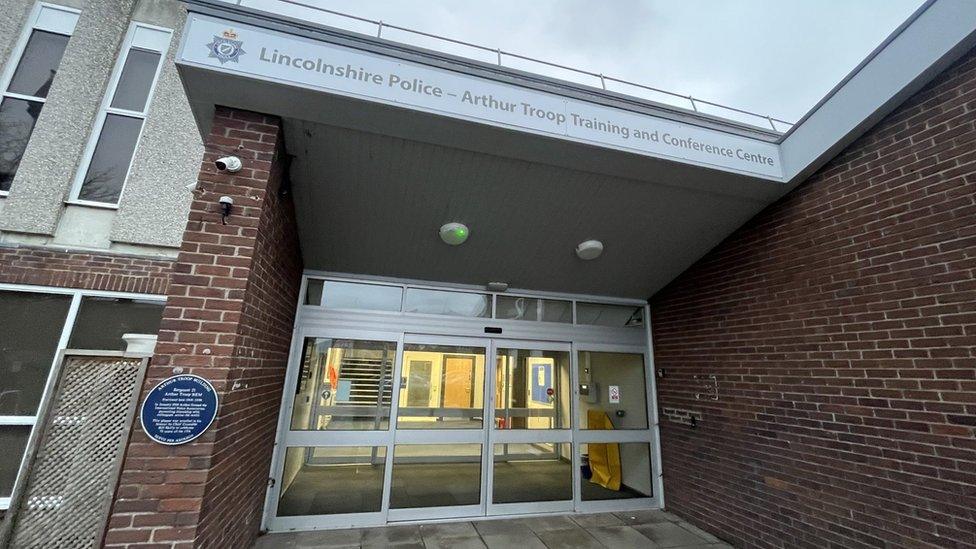Police domestic abuse ignored - former top officer
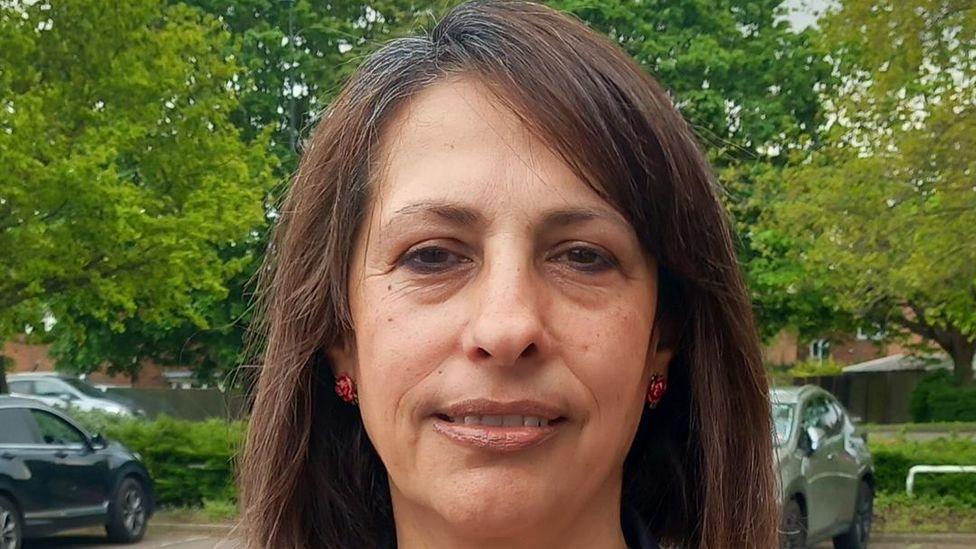
Kerrin Wilson said "old boys" networks prevent transparent investigations
- Published
Lincolnshire Police's former Assistant Chief Constable, Kerrin Wilson, said misogynistic male cliques within the force must be dismantled, to stop claims from female victims being covered up.
It comes as figures obtained by the BBC show Lincolnshire Police has investigated its own officers and staff 52 times for sexual offences and violence against women, since 2018.
Only six cases resulted in a charge or court summons.
Lincolnshire Police said it would investigate all allegations against its officers, regardless of what rank or position they hold.
Kerrin Wilson retired after 30 years in policing in 2022, spending her last four in one of the most senior roles at Lincolnshire Police.
She claimed allegations about male officers would sometimes be ignored: "Internally, domestic abuse has gone on, and quite often you'll get an old boys' network, which will try to cover it up, and sweep it under the carpet," she said.
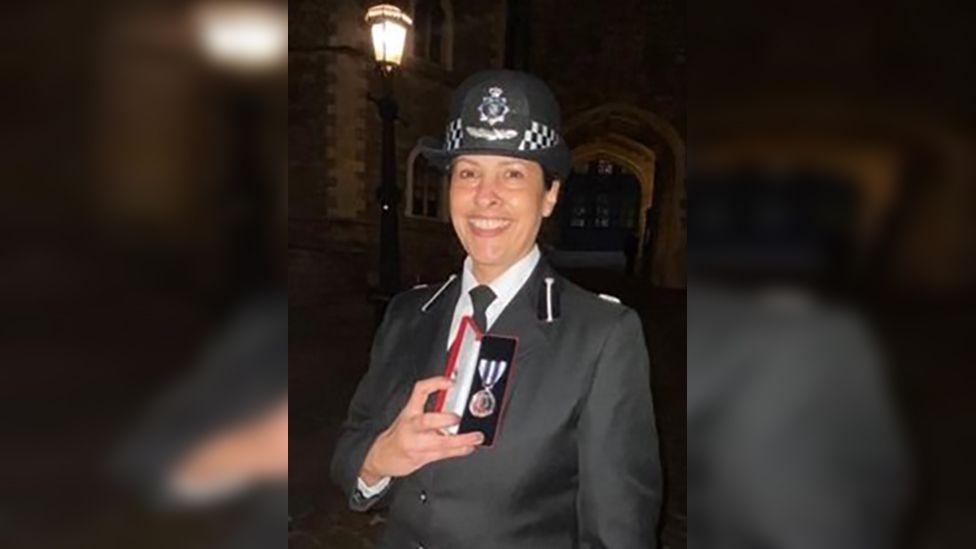
Kerrin Wilson was awarded the Queen's Police Medal (QPM) in 2021
Mrs Wilson added: "I've been subjected to those sorts of networks, trying to silence things that I've wanted to raise previously."
She said the culture often makes it difficult for victims to come forward.
"If people are telling you that it's not a serious issue, if it's a one-off, that he's such a good guy, and that he's got a strong network, then you will, certainly as a female officer, feel very intimidated by all that, because it's not spoken about.
"I think a lot more people need to talk about it, and that male, misogynistic culture that exists in some cliques within Lincolnshire police, need to be dismantled.”
'More aggressive'
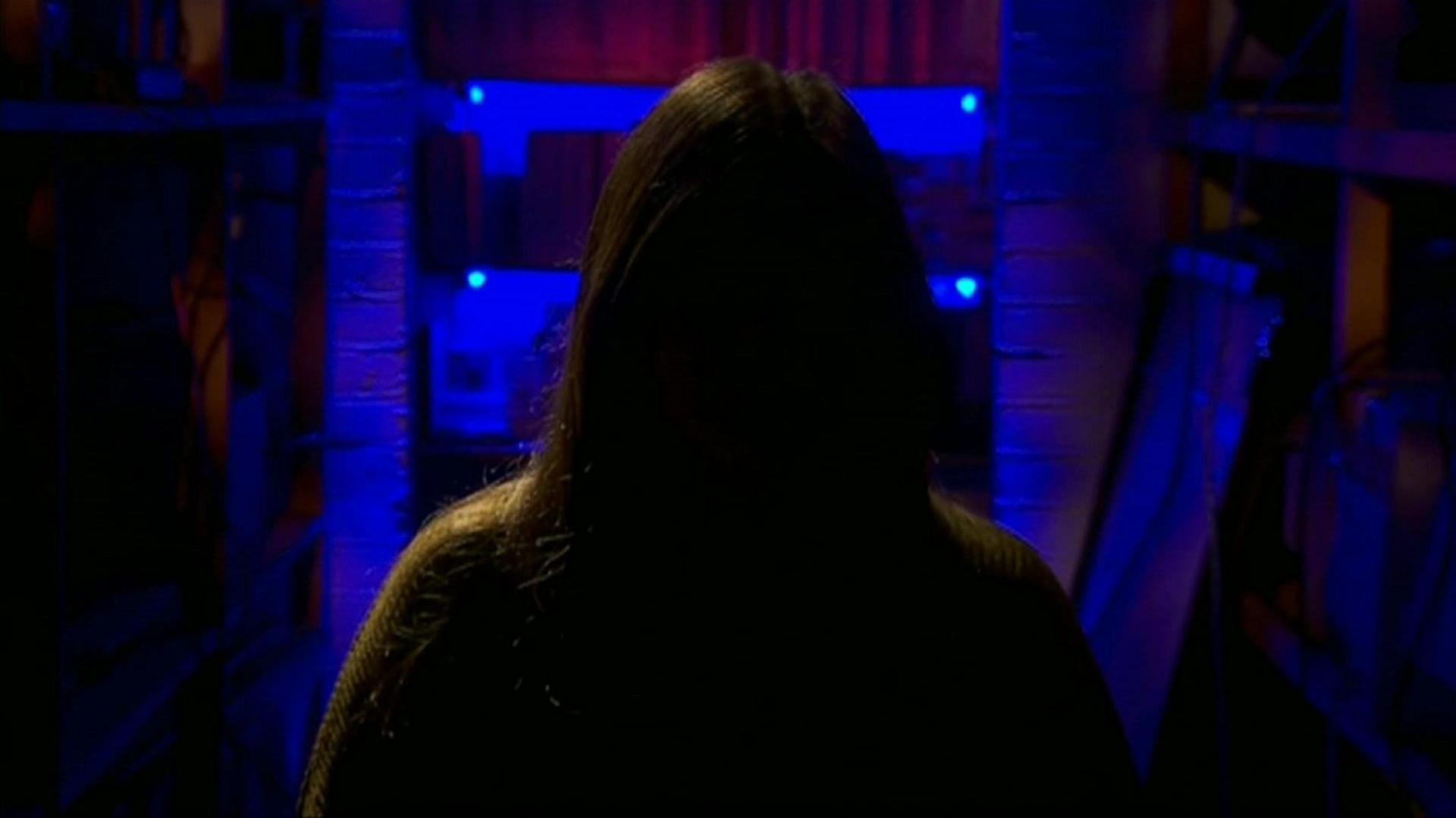
Chloe was in a controlling relationship with a Lincolnshire Police officer
One woman has spoken exclusively to the BBC about her controlling relationship with a Lincolnshire police officer.
Chloe (not her real name) said she had no idea what was to come.
"At first he just seemed to say all the right things, and was really attentive, calling me, making me laugh, he was really charismatic," she said.
"Things started to change when our relationship developed more.
"He became very short tempered with me and [would] snap at me for very insignificant things, sometimes for the way I ate, and he would accuse me of saying or doing things that I hadn't done."

Chloe was in fear for her safety as her partner became more controlling
Chloe said she faced increasing levels of aggression.
"In the end I couldn't go a day without him having some kind of outburst and screaming at me," she said.
"He used to stand in my space, shout in my face, and I was always in fear that he was going to physically hurt me.
"He would convince me that it was my behaviour that had made him that way. So, I became very meek and mild."
The officer warned Chloe not to go to Lincolnshire Police about him, saying her complaint would go nowhere. She did eventually report him, but her case was not investigated.
She said she is still dealing with what happened to her.
"I found the whole experience quite traumatic.
"I think like many victims, you sometimes feel like, if you haven't got the physical scars, you sometimes feel like you might have imagined it, or that actually your experience isn't that bad."
If you have been affected by any of the issues in this story, information and support is available via the BBC Action Line.
Criminal investigations
Using a Freedom of Information request, the BBC discovered that between 2018 and 2023, Lincolnshire Police investigated its own officers and staff 52 times for sexual offence allegations and violence against women and girls.
Five cases resulted in a charge, and one in a court summons.
One officer was investigated nine times for offences including attempted murder and rape, yet no criminal action was taken.
He was barred from policing following a misconduct hearing.
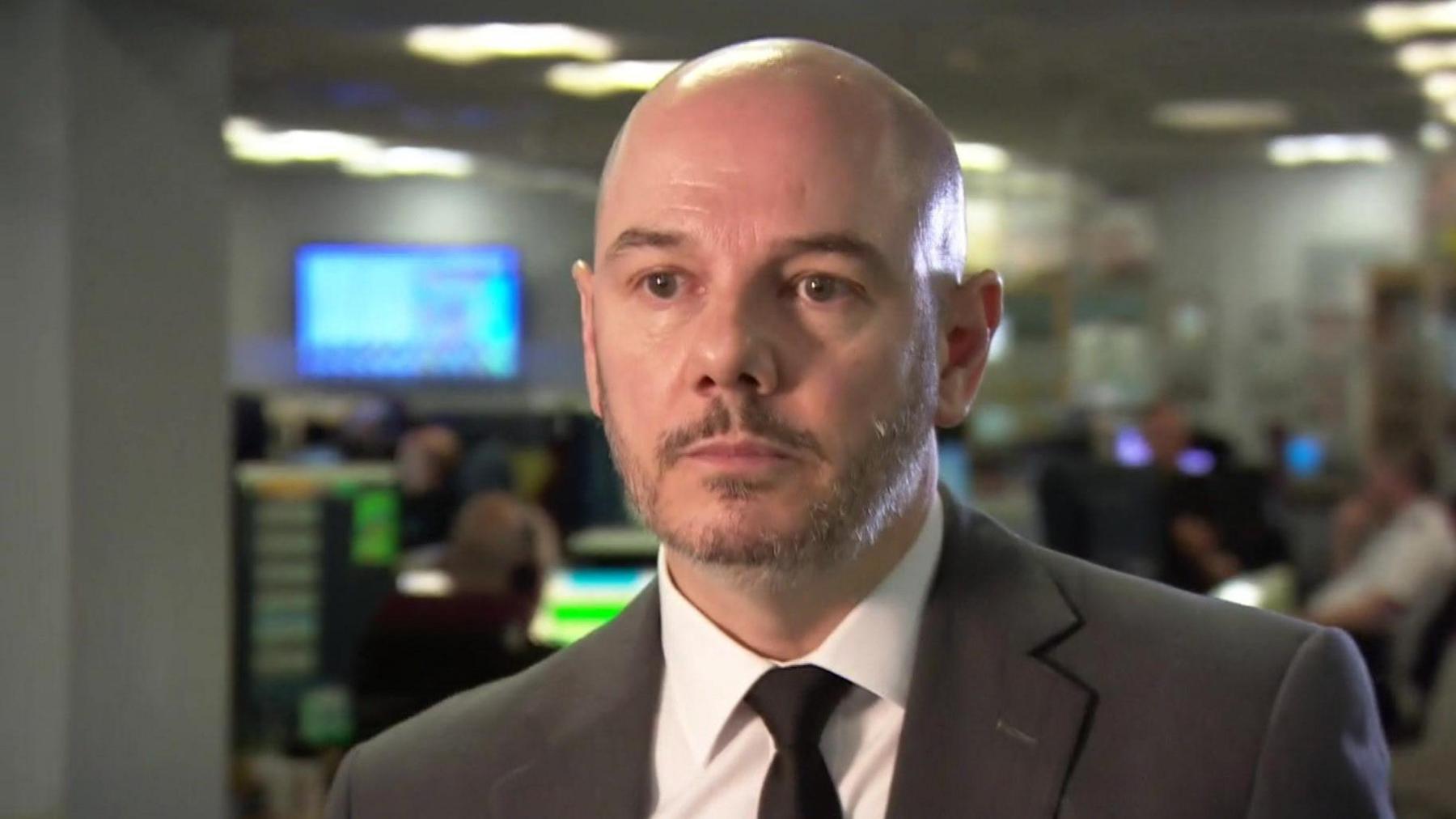
Det Ch Insp Paul Coleman, said there has been positive change in policing culture
Det Ch Insp Paul Coleman, from Lincolnshire Police's professional standards department said while an officer may be disciplined through internal misconduct proceedings, it is more difficult to bring criminal charges for offences such as coercive control.
"Very often the charging thresholds for such offences is actually high," he said
"So while it's right we look into these matters, very often, controlling and coercive isn't charged, because actually, the evidence isn't there."
Mr Coleman claimed that the force is taking positive steps to change its culture.
"I'm personally appalled at some of the behaviours and examples that I've seen of how women have been treated, and I think it's up to me and every other man in the organisation to make sure that doesn't happen," he said.
"In regards to male cliques, I agree that they shouldn't be existing and actually, if they are, then it's my job and the job of my team and others actually, to make sure that doesn't.
"I think everybody would agree that we haven't always got it right in the past and I don't think we should hide away from that.
"We need to admit there's a problem before we can change it, and we are are moving in the right direction."
'Mandatory suspension'

Sarah Everard was murdered by Metropolitan police officer, Wayne Couzens
Sarah Everard was abducted, raped and murdered by Met officer, Wayne Couzens, in March 2021.
An independent inquiry lead by Lady Elish Angiolini found that a radical overhaul of police vetting and recruitment was needed.
In March, the Home Office announced it would speed up investigations into officers suspected of committing offences, and that there would be mandatory suspension for any police officer charged with indictable only offences.
A Home Office spokesperson said: “We are committed to holding police officers to the high standards we expect of them, making it easier to sack corrupt officers and those who fail vetting, whilst improving intelligence checks on all officers, staff and volunteers.
“Part Two of the Angiolini Inquiry is examining issues such as culture in policing, so that women, and the wider public, can have confidence police officers are there to protect them and uphold the highest standards.”
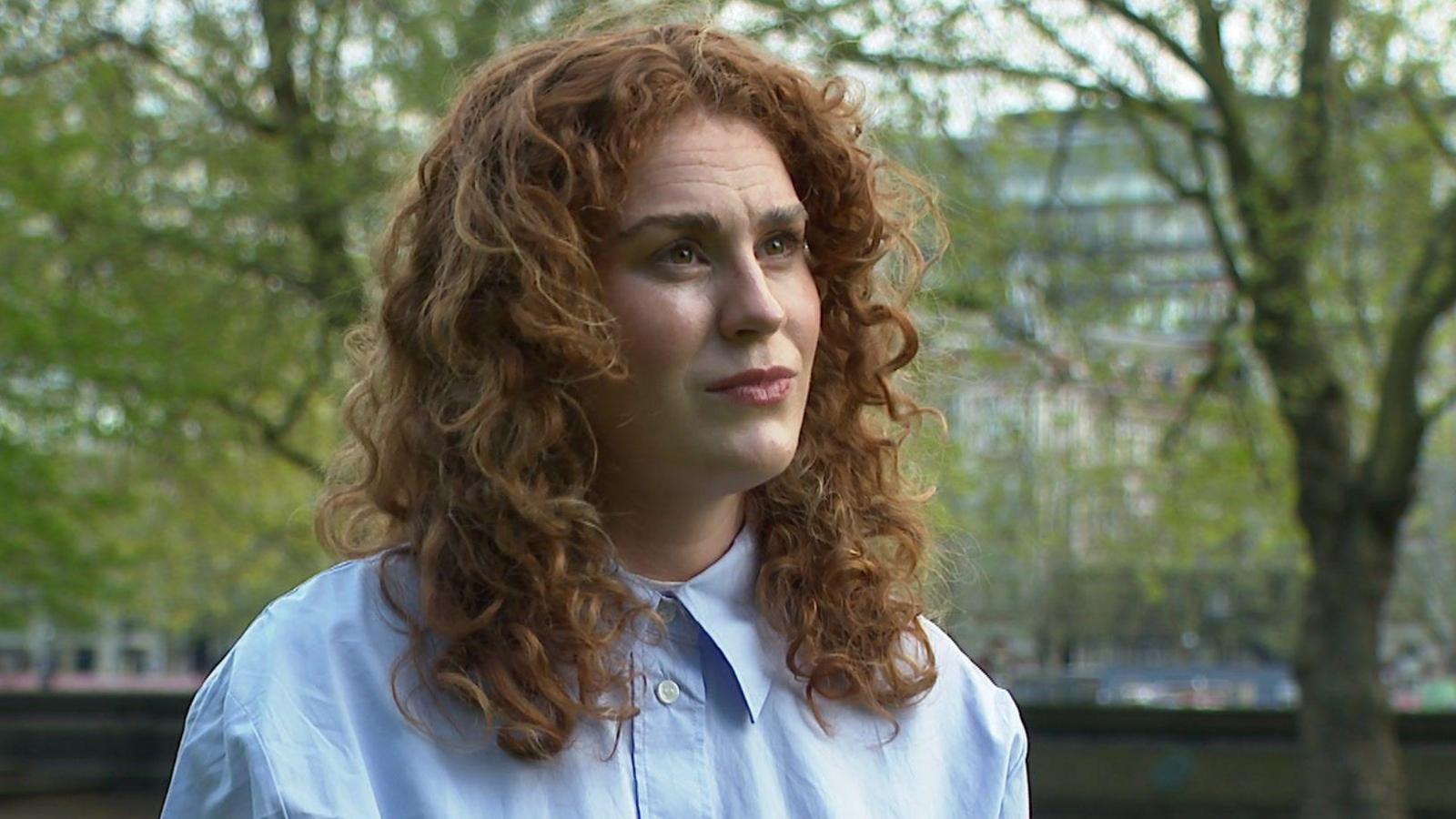
Amy Bowdrey from Refuge is calling for a complete overhaul of police vetting
But the domestic violence charity Refuge believes the changes do not go far enough.
Policy and Public Affairs Officer, Amy Bowdrey, said: "Although there have been recommendations for change we haven't seen what we need to see for women and girls, to ensure that they're safe.
"Refuge is calling for a presumption in favour of suspending police officers accused of violence against women and girls pending the outcome of an investigation, which needs to be quick and thorough.
"Alongside this there needs to be root and branch reform of policing. This means changes to vetting procedures, so reducing the time between initial police vetting and re-vetting from 10 years to five years or less."
Additional reporting from Helen Gardner and Jonathan Fagg
Follow BBC East Yorkshire on Facebook, external, X (formerly Twitter), external and Instagram, external. Send your story ideas to eastyorkslincs.news@bbc.co.uk, external
More stories about
- Published5 September 2023
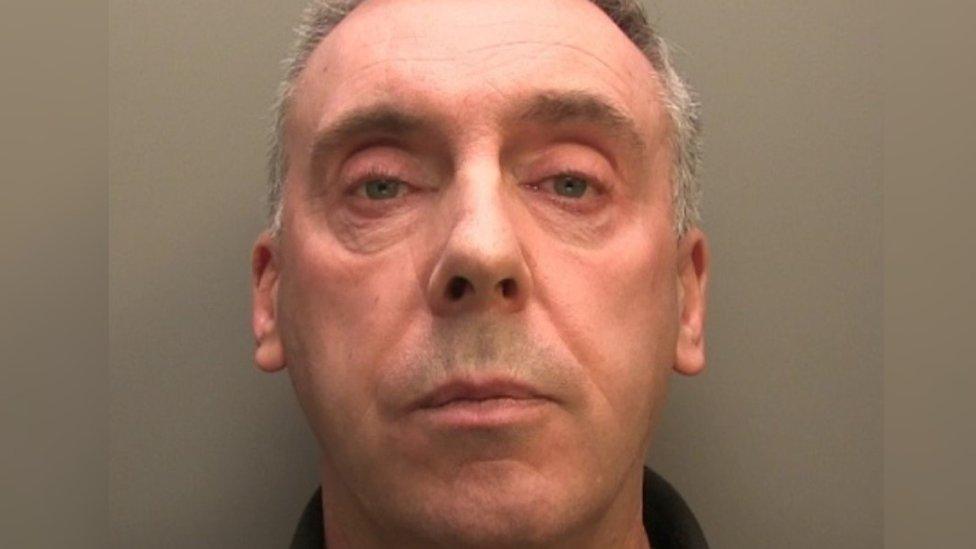
- Published6 January 2024
